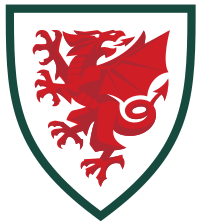Whenever something memorable happens, the question gets asked shortly thereafter. Where were you when you saw/heard/read about it? Even though it’s been proven that many of these memories we have about these moments are fabricated, created in our minds, we each still have our own stories which we firmly believe...
So, if I am asked: Where were you when Wales played in (and won) their first game at an international tournament in fifty-eight years? I have my memory, and, true or not, it still feels profoundly real to me. I was in a sports bar in Bangkok, watching the game with an eclectic mix of fans: English, Scottish, Irish, Canadian, American, Hungarian, South-African, Thai. Experiencing an international football tournament with such a wide variety of nationalities was one of the things that made this such a unique and memorable time for me, personally, but it wasn’t the most significant, not at all.
The most significant aspect of Euro 2016 was that it was the first time in my life, or in my father’s, or in the lives of anyone I knew growing up, that we had our own horse in the race.
International tournaments are the soap operas that attract and entice regular people and make them into football fans in the first place. Everyone remembers their first one (or is that memory also a fiction?) and even though this wasn’t my first (France ’98), it was my first where I had my own actual team out there to support, an experience I had only lived vicariously in previous tournaments.
Although those past experiences of tournaments were exciting enough to make a football fan out of me, it was nothing like this. This was watching football as a child again. This was cheering a goal and genuinely losing control of the volume. This was what everyone else had been going through all these years, something which I had only witnessed and not felt.
Even after that first, narrow win against Slovakia, courtesy of a fortuitous goal from Robson-Kanu, I didn’t expect much more. We were there, we were playing, and that was enough. All we asked for was to not get embarrassed, especially not against England. Give a good account of ourselves. That’s all we wanted.
Well, you probably know what happened. We did lose against England (barely, with a last-minute Sturridge goal), but instead of getting knocked out by Iceland in the next round, we very nearly made it to the final, losing narrowly to a thumping Cristiano Ronaldo header in the semi-final. This came of course after a special victory over Belgium in the quarters, our finest hour, a night captured best by Robson-Kanu’s goal, a smart finish after a smarter turn which fooled three Belgian defenders and left them on the floor.
I still smile when thinking about those special few weeks. The time difference between Western Europe and Bangkok meant I was getting up at 2am to tune into games, even on workdays. And although I was disappointed at getting so close to a European final (Wales, in a European final, I mean . . .) in the end, we did way more than just not get embarrassed. We made a generation proud.
(I saw “we” like I had anything to do with it, but this is what international football, and any international affair does: it creates a consensus among a large group of people who may feel like strangers much of the time, but for those brief moments feel connected, feel impassioned, feel Together Stronger.)
So, here we are now. Five years on.
Should have been four, little pandemic got in the way, but here we are.
Wales have qualified, again.
It’s hard to say whether I can conjure up the same optimism this time around. Bale and Ramsey, the two stars of ’16, the two players with genuine heavyweight pedigree behind them, are not the players they were back then. Both have struggled with injury and playing time. Both have aged.
The manager is currently on trial for head-butting a woman. Two of the fixtures are played in Baku, a city in a country which is a) not even in the tournament and b) not even in Europe, in half empty stadiums, and all three will be played against devilishly tricky opponents.
Overall, the expectations at the start remain the same for me as they did five years ago. Don’t get embarrassed. That’s all I ask.
But therein lies the key: I may not have much optimism now, but I didn’t five years ago either. No one did. Unlike with the major teams in the tournament, France, Portugal, England, Germany, there is no burden of expectation. There are no pundits proclaiming us to be favourites, no journalists declaring anything less than the semi-finals would be a failure. And, although Bale and Ramsey have faded somewhat, they are still players who seem to undergo a transformation when they put on the red shirt. They come alive and produce the best performances of their careers.
And alongside them, there’s a selection of Premier League level players who weren’t in the mix last time around: Daniel James, Harry Wilson, David Brooks, Joe Rodon, Ethan Ampadu. There’s a much better all-round squad, and, perhaps crucially, it’s a squad of players that haven’t all been playing two or three times a week all year in the squashed schedule. There’s a freshness, an innocence that could go a long way in a competition full of the jaded elite, heavy under their crowns.
For now, I’ll look forward to Switzerland on Saturday.
And I’ll ask for the same. Just give a good account of yourselves. That’s all.
It’s still enough just to be able to watch my own team on the big stage. For now.

